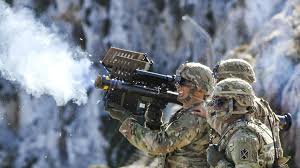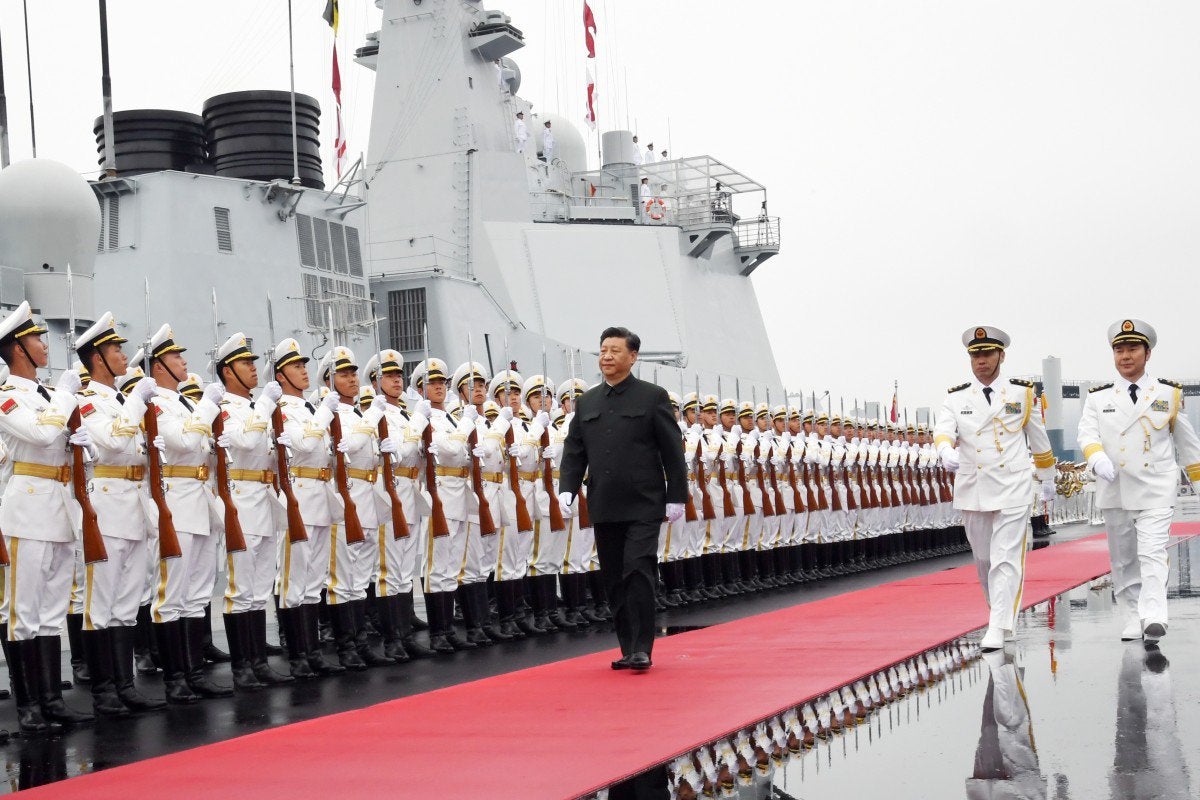by Francis Tuschek, Staff Writer
A senior defense official revealed yesterday that the Chungshan Institute of Science and Technology, affiliated with the Ministry of National Defense, is seeking certification to assemble an additional 1,985 Stinger missiles beyond those purchased through US arms sales.
The official, speaking anonymously, noted that a US team will visit Taiwan to assess the institute’s manufacturing capabilities and information security. Initially, Taiwan acquired 500 missiles for its army and navy, later increasing the order to 2,485 due to escalating military activities from Beijing and the urgent need for mobile weapons to counter Chinese air power and drones.
If the institute successfully obtains the certification, it could expedite the delivery of the missiles, which are currently expected between next year and 2031. Taiwan plans to deploy Stinger systems to military and coast guard units in the Pratas and Spratly Islands.
The ministry did not confirm or deny reports regarding recent US deliveries of some missiles. The institute clarified that it does not set policy but is eager to gain the certification to assemble the missiles.
The Stinger air defense system is a portable surface-to-air missile capable of targeting both rotary and fixed-wing aircraft within a range of 4.8 km.
In related news, the ministry announced that defense contractor RTX Corp will reimburse Taiwan for losses incurred due to the company’s guilty plea to price gouging in US arms sales to allies. RTX, formerly known as Raytheon and based in Virginia, manufactures Patriot air defense missiles and radar systems for Taiwan and other allied nations.
The US Department of Justice is investigating the price-gouging allegations and has kept Taipei informed of its findings. A plea deal has been reached, with RTX agreeing to return approximately US$959 million in unlawful gains to affected parties.
The ministry indicated that Beijing has been promoting skepticism about the US through Chinese-language content farms, urging the public to critically evaluate information sources.
Major General Sun Li-fang, a ministry spokesman, stated that this case demonstrates the effectiveness of anti-corruption measures in arms sales between Taiwan and the US. He emphasized that the ministry refrained from disclosing specific case details to protect the integrity of legal proceedings, not to hide unfavorable news.
Democratic Progressive Party Legislator Wang Ting-yu criticized the ministry for a lack of transparency with both lawmakers and the public. He advocated for the development of an independent system to assess US-sourced arms procurements to reduce reliance on Washington for ensuring fairness in transactions, despite the effectiveness of current safeguards.
一位高級國防官員昨天透露,隸屬於國防部的中山科學研究院正在尋求認證,組裝額外的1,985枚「毒刺」導彈,這些導彈是超過通過美國軍售購買的數量。
該官員以匿名身份表示,一個美國團隊將訪問台灣,評估該研究院的製造能力和信息安全。最初,台灣為其陸軍和海軍購得500枚導彈,後來因北京日益增加的軍事活動及急需流動武器以應對中國空中力量和無人機,將訂單增加至2,485枚。
如果該研究院成功獲得認證,將有助於加快導彈的交付,目前預計交付時間在明年到2031年之間。台灣計劃在澎湖群島和南沙群島的軍事及海巡單位部署「毒刺」系統。
國防部沒有確認或否認有關最近美國交付一些導彈的報導。該研究院澄清表示,並不制定政策,但渴望獲得組裝導彈的認證。
「毒刺」空中防禦系統是一種可攜式地對空導彈,能夠在4.8公里的範圍內瞄準旋翼機和固定翼飛機。
在相關消息中,國防部宣布防務承包商RTX公司將賠償台灣因該公司承認在美國對盟友的軍售中價格操縱而遭受的損失。RTX,前身為雷神公司,總部位於維吉尼亞州,為台灣及其他盟國製造愛國者空中防禦導彈和雷達系統。
美國司法部正在調查價格操縱的指控,並隨時向台北通報調查結果。已達成認罪協議,RTX同意將約9.59億美元的非法收益返還給受影響方。
國防部指出,北京透過中文內容農場推廣對美國的懷疑,敦促公眾批判性地評估信息來源。
國防部發言人孫立方少將表示,這一案件顯示了台灣與美國之間軍售反貪腐措施的有效性。他強調,國防部未透露具體案件細節是為了保護法律程序的完整性,而不是隱瞞不利消息。
民主進步黨立法委員王定宇批評國防部對立法者和公眾缺乏透明度。他主張應該發展一個獨立系統來評估美國來源的軍購,以減少對華盛頓在交易公正性上的依賴,儘管目前的保障措施已經有效。



